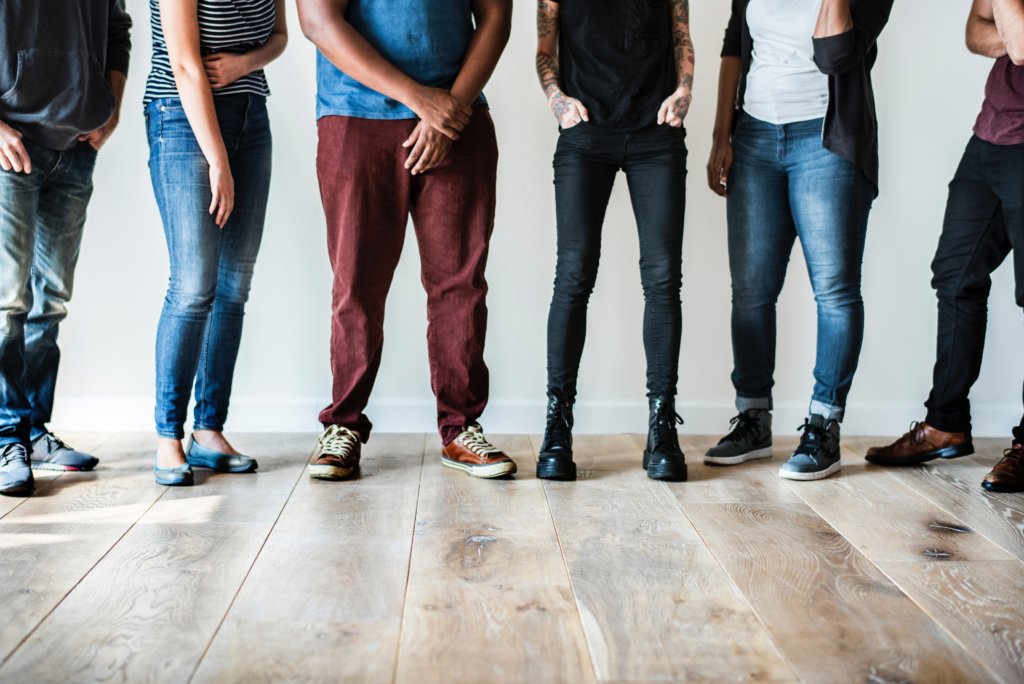I’m sick right now so I can’t guarantee the eloquence of this post, but I wanted to write something anyway because I feel passionately about this topic. I’m observing a few things going on in the world right now. Tension is high. People are pissed, rightly so, at all the injustice running rampant. I’m not a sexual assault survivor, but I was also affected by the Ford-Kavanaugh hearing. To listen to so many horrible stories from people and to witness some of the reactions to them didn’t make me feel good. Everyone wants to feel seen, heard, and respected and when we’re not, it’s painful.
I also notice people in power are pissed too. Again, one only has to look at Kavanaugh’s testimony to see that. He didn’t show up to the hearing contrite. He showed up belligerent, denying all accusations. The New Yorker ran an opinion piece declaring the Ford-Kavanaugh hearing will be remembered as a “grotesque display of patriarchal resentment.”
These are the times we’re living in. From an astrological perspective, there’s a whole lot of “othering” going on, as in separating from others, erecting boundaries, and dehumanizing people. Astrology is not causal, it’s instead like a map, and in this instance, we as a society are demonstrating the disintegrated version of the Saturn:Pluto transit. Othering is not limited to sexism, its showing up everywhere. It shows up in the treatment of people of color, in immigrants, of the LGBTQIA community. Anyone who doesn’t fall into the majority is subjected to “othering.” What’s interesting for me to notice though is even those who are privileged and in the majority are not immune to being “othered.” I read an exchange on facebook where a white man posted something he thought was supportive of the #metoo movement and a woman blasted him for it because she thought otherwise. She said instead his post played into patriarchy, that he is part of the problem, that he’s another privileged white dude perpetuating the disempowerment of women.
I get where people are coming from and at the same time I’m reminded of a quote someone shared on facebook that struck me as relevant for the times we’re living in: “If you don’t heal what hurt you, you’ll bleed all over the person who didn’t cut you.” Yep. Lots of bleeding right now. Lots of hurt people walking around. We are all taking out our pain on each other.
What is the solution here? The solution I think is three-fold: One, to heal what hurt us, whatever that looks like. Two, I think it’s important to practice empathy, to understand the perspective of all our siblings. We don’t all have the same experiences, but we all have the same needs. There is more that binds us than divides us. Lastly, as philosopher P.R. Sarkar writes in his book, The Liberation of Intellect: Neohumanism, “You will have to carry the collectivity with you, because the collectivity is yours. The collectivity is not outside you – your future is inseparably connected with the collective fortune. You must take the entire collectivity with you and move toward the sweetest radiance of the new crimson dawn, beyond the veil of the darkest night.”
We are a collective, moving together. We are a universal family sharing the resources of this planet. We are like a garden filled with numerous flowers, but ultimately all a part of the same garden. Like flowers, on the surface we have different petals, different leaves. Some of us require more water and some of us require less, but we are all flowers. We all require care and attention and I truly believe we can make it so.
I dream of a world where we all work together to take care of each other. A world where we seek to understand our kith and kin. A world where we remember we have more in common than we might believe. A world where we realize there is no “other,” only us.
Another world is not only possible, it’s probable.
The other day, a friend of mine confessed she’s struggling to find the silver lining in the #metoo campaign. Yes, it’s about time certain men experience the consequences of their inappropriate sexual mistreatment. She applauded that, but what about for the survivors themselves? For their hardship? Where is their silver lining when many are likely to suffer from PTSD or other symptoms?
The question stuck with me because while it’s true sometimes suffering leads to transformation, sometimes suffering is just painful and unreasonable and scarring. Where is the good in all that? For me, the answer comes when I change my perspective, when I look beyond the individual and see society as a whole.

Sometimes the things we do are not for us, but rather for them. Photo by Yousef Espanioly on Unsplash.
Specifically regarding #metoo, the silver lining is things are changing for the people behind us. Future generations won’t have to deal with the same things we are. Man after man is losing his job due to sexual misconduct allegations. Things cannot and will not be the same after this. Do I believe sexual harassment will become a thing of the past immediately? Of course not, but what we as a society will tolerate has changed. In that way, hardship has made things better for future generations.
I’ve written about this before, but in yogic philosophy we have a word for this: tapah. Tapah means undergoing hardship in order to help others. Normally when I think of tapah, it’s on an individual and physical level, as in, helping someone move into their new apartment. Or I’ll think of tapah as giving away food when I’m hungry because someone else is hungrier than I am. Everything going on in the world has me contemplating tapah on a grander scale. Perhaps undergoing difficulties benefits not only the people we interact with directly, but those we don’t. And furthermore, perhaps undergoing difficulties benefits not only current generations, but future ones.
This makes sense when we take a historical perspective. In particular I’m thinking about unions. How many children died before we enacted child labor laws? How many people had to suffer before we shortened the work week to five days? Some people lived to see those changes, but some did not. Individually we might say nothing good came from the person’s struggles, especially if no direct link exists between their hardship and change, but collectively it adds up to something greater.
I’ve heard before we stand on the shoulders of giants. Usually we say that in the context of innovation and discovery. But what if we stand on the shoulders of giants regarding darker things too? And what if we, ourselves, are giants for the people coming after us?
I dream of a world where we recognize our actions have consequences not only for us, but for those who come after us. A world where we remember we may not see the fruits of our actions, but that doesn’t mean our actions don’t bear fruit. A world where we take a broader perspective and realize sometimes our pains don’t make things better for us, but rather for them.
Another world is not only possible, it’s probable.
